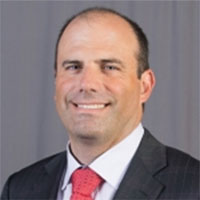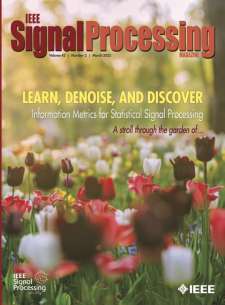Research Gems Found Digging with Industry
Top Reasons to Join SPS Today!
1. IEEE Signal Processing Magazine
2. Signal Processing Digital Library*
3. Inside Signal Processing Newsletter
4. SPS Resource Center
5. Career advancement & recognition
6. Discounts on conferences and publications
7. Professional networking
8. Communities for students, young professionals, and women
9. Volunteer opportunities
10. Coming soon! PDH/CEU credits
Click here to learn more.
Research Gems Found Digging with Industry
 Industry involvement is a significant area of interest for the IEEE Signal Processing Society (SPS). It is also a frequent topic of conversation at the SPS Board of Governors meetings. According to the SPS’s website (https:// signalprocessingsociety.org), 42% of our 19,000 members are from industry. Yet the number of attendees from industry of our flagship conference, the IEEE International Conference on Acoustics, Speech, and Signal Processing, is much lower, based on my best estimate from the sessions I attended.
Industry involvement is a significant area of interest for the IEEE Signal Processing Society (SPS). It is also a frequent topic of conversation at the SPS Board of Governors meetings. According to the SPS’s website (https:// signalprocessingsociety.org), 42% of our 19,000 members are from industry. Yet the number of attendees from industry of our flagship conference, the IEEE International Conference on Acoustics, Speech, and Signal Processing, is much lower, based on my best estimate from the sessions I attended.
IEEE Signal Processing Magazine (SPM) is “the voice to the outside world,” to quote Vice President of Publications Prof. Sergios Theodoridis. No offense to the journals in the signal processing portfolio, but I believe that SPM offers the most accessible content for all signal processing members. It is a primary mission to bring tutorial content through feature articles, special issues, and columns. As a result, I think SPM is a great way to foster collaboration between academia and industry.
More industry involvement is a selfish endeavor on my part. To be blunt, industry provides me and my students with practical problems that need to be solved. My students need to solve problems so they can publish papers and write dissertations. I need to graduate students with M.S. and Ph.D. degrees to fill needs in academia, industry, and government. With closer ties to industry, the problems my students solve can be relevant, the work impactful, and the students better trained for their positions. When industry funds collaborative research, this feedback loop can be efficient.
Sometimes industry provides research gems, which look rough to the pro - fessor. Several years ago, I had a student (Dr. Omar El Ayach, now at Google) who did an internship with Samsung in Dallas, Texas. While there, he worked on a problem related to multiple-input, multiple- output (MIMO) communication in emerging millimeter-wave communication systems. After his internship, we worked together with his Samsung mentors (Dr. Sridhar Rajagopal, now at Mavenir, Dr. Shadi Abu-Surra, now at PHAZR, and Dr. Zhouyue Pi, now at Straightpath) on some papers related to his internship. Though they did not fund his Ph.D. work, I asked Omar to continue work on these problems to bootstrap my research interests in millimeter-wave signal processing.
SPS Social Media
- IEEE SPS Facebook Page https://www.facebook.com/ieeeSPS
- IEEE SPS X Page https://x.com/IEEEsps
- IEEE SPS Instagram Page https://www.instagram.com/ieeesps/?hl=en
- IEEE SPS LinkedIn Page https://www.linkedin.com/company/ieeesps/
- IEEE SPS YouTube Channel https://www.youtube.com/ieeeSPS














